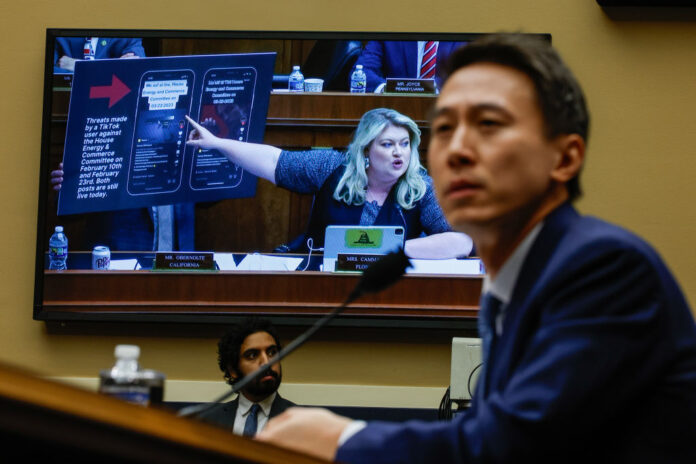The Politics Behind the TikTok Ban
Officials in Washington claim national security concerns justify banning TikTok, citing potential data access by the Chinese government. Yet, the urgency surrounding the issue seems oddly selective, considering the extensive surveillance conducted by American tech giants in collaboration with intelligence agencies. “The U.S. has expressed fears that TikTok’s data could be accessed by the Chinese government, posing a national security threat,” stated an official familiar with the matter. While foreign tech companies face scrutiny, domestic firms that mine user data operate freely with government contracts. The debate over TikTok is less about privacy and more about controlling digital influence.
Censorship Disguised as Security
Some lawmakers appear more concerned about the content TikTok amplifies than the alleged risks to cybersecurity. The platform has been a powerful tool for discourse on global issues, including the Israeli-Palestinian conflict. Senate Intelligence Committee Democrat Mark Warner remarked, “I want to see if you’re going to tell the real story,” in response to the platform’s content moderation choices. Republican Representative Mike Gallagher openly admitted that political momentum for a ban grew after October 7, 2023, when pro-Palestinian content surged online. The timing of the legislative push reveals how security rhetoric often masks broader attempts at narrative control.
Uniting Against a Common Digital Enemy
The bipartisan nature of the TikTok ban effort exposes how political forces align when a perceived external threat can be used to justify domestic control. While cybersecurity risks are touted as the main concern, the more pressing issue for lawmakers seems to be TikTok’s ability to shape public opinion. “Both Republicans and Democrats have united in the effort to ban TikTok, though motivations vary from national security to foreign policy stances,” according to a government insider. The crackdown mirrors historical patterns where national security becomes a convenient excuse for restricting platforms that challenge prevailing narratives. The effort signals that Washington’s real concern is losing its grip over information flows, not just data security.
AI and the Machinery of War
Artificial intelligence has become a fundamental tool in modern warfare, with major governments embracing its capabilities for surveillance and combat. American tech companies provide Israel with AI-driven software to enhance military operations, solidifying the role of private firms in global conflicts. Microsoft’s Azure system has been instrumental in processing surveillance data for military use, streamlining intelligence operations. The expansion of AI-driven warfare shows a reality where technological development is directly tied to military strategy. As AI continues shaping modern conflicts, its unchecked development reinforces power imbalances rather than improving security.
The Normalization of Autonomous Warfare
The deployment of AI in military operations has sparked concerns over the diminishing role of human oversight in lethal decision-making. Autonomous systems reduce the accountability of those directing military campaigns, making conflicts easier to escalate with fewer political consequences. A military technology researcher noted that “the integration of advanced AI in military operations raises questions about accountability and the escalation of conflicts.” Despite these concerns, governments and defense contractors push forward with automation, knowing it strengthens military dominance. The conversation surrounding AI in warfare highlights how technological advancements are used to expand control rather than prevent conflict.
Corporate Influence in Policy-Making
The increasing entanglement between government agencies and technology firms raises pressing questions about who truly controls national security policy. Companies specializing in artificial intelligence and data analytics have become powerful stakeholders, shaping policy in ways that benefit their business interests. Palantir, a key government contractor, lobbies aggressively to deepen ties between Silicon Valley and Washington’s security apparatus. A policy expert noted that “companies like Palantir actively engage in policy discussions, advocating for a closer union between the state and the software industry.” This fusion of corporate and state power allows private entities to profit while shaping policies that impact millions. The implications of this unchecked influence demand scrutiny, yet few in Washington challenge the growing dependency on these firms.
Weaponizing Technology for Control
Technology’s role in geopolitics extends far beyond security—it has become a tool for consolidating influence and suppressing opposition. Whether through AI-driven warfare, digital surveillance, or information control, the beneficiaries of these advancements are rarely the public. Governments and corporations alike exploit technological progress to solidify power while presenting their actions as measures of protection. As digital landscapes become battlegrounds for control, those shaping policy show little interest in the liberties they claim to defend.

